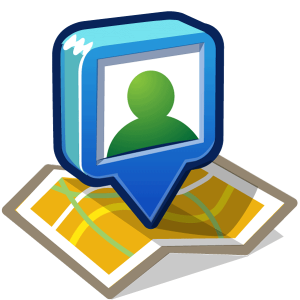Editor's Note: Dave Shaffer, Assistant Director for Special Programs at The Center for the Performing Arts at Penn State University, is a community volunteer and lifelong reporter on technology and media. Dave is a 1977 Penn State Journalism graduate.
I remember Google Latitude being promoted several months ago as the program that would become the “next” Foursquare. The idea was that you could not only check in with your location and see where others had checked in, but you could actually see in real time where they were … even if they hadn't checked in. The software would look at the phone numbers and locate them on a Google Map based on GPS, cell tower, or WiFi data. That is a step beyond Foursquare’s service.

Clearly, it did not catch on or become the next Foursquare. In fact, I haven’t recently seen anything about it at all, and you have to search a bit to find that it does still exist. I thought the shared location feature was likely too much information for a large list of friends and acquaintances. Do you really want everyone to be able to see your location 24/7? I don’t.

Clearly, it did not catch on or become the next Foursquare. In fact, I haven’t recently seen anything about it at all, and you have to search a bit to find that it does still exist. I thought the shared location feature was likely too much information for a large list of friends and acquaintances. Do you really want everyone to be able to see your location 24/7? I don’t.
However, I wondered if perhaps it might work as a no-cost family locator service. So in the past week I enlisted the help of three friends, one in State College, Pa, one in Maryland, and one in Texas. They all activated Latitude on their phones and became friends with me on that system. That is different than and separate from being friends in other programs, even Google programs. You have to run Latitude on your phone and agree to share your location data with your Latitude friends.
Let me first say that Latitude is a free download and, while it may increase data usage over time, there is no cost from your carrier (at least not Verizon) to run the program. So basically, it is free.
Second … you can actually see your friend’s location, in almost real time, and depending on the source of data on each phone, with surprising accuracy. In one case, I was able to see that a friend was in the food court at a mall in Maryland. I sent him a text and asked, “You aren't having dinner at the McDonald’s there, are you?” “No,” he replied. “But I’m at the bar-b-q place next door.” That’s pretty good. At other times, location data tended to drift off just a bit. And there was often a delay of a few minutes in receiving updates. So it isn't exactly like what you see on TV. But generally, it was surprisingly accurate.
We've since closed the Latitude connections. But here’s my conclusion:
If you want to be able to “see” the whereabouts of family members or close friends, with surprising accuracy and in an (almost) real-time environment, try Google Latitude. I would suggest you be sure to limit the availability of your location data only to Latitude friends and careful to limit who you add as friends.
 |
| A typical Latitude location screen. Not *exactly* right, but awfully darn close. |
Contributor:
Dave ShafferDave is a community volunteer and lifelong reporter on technology and media. Dave is a 1977 Penn State Journalism graduate and Assistant Director for Special Programs at Penn State's Center for The Performing Arts. He's worked as news director for WCED in DuBois, Pa, and as a freelance reporter for The Brockway Record and Reynoldsville Star.
Website:
FacebookPenn State Center for the Performing Arts